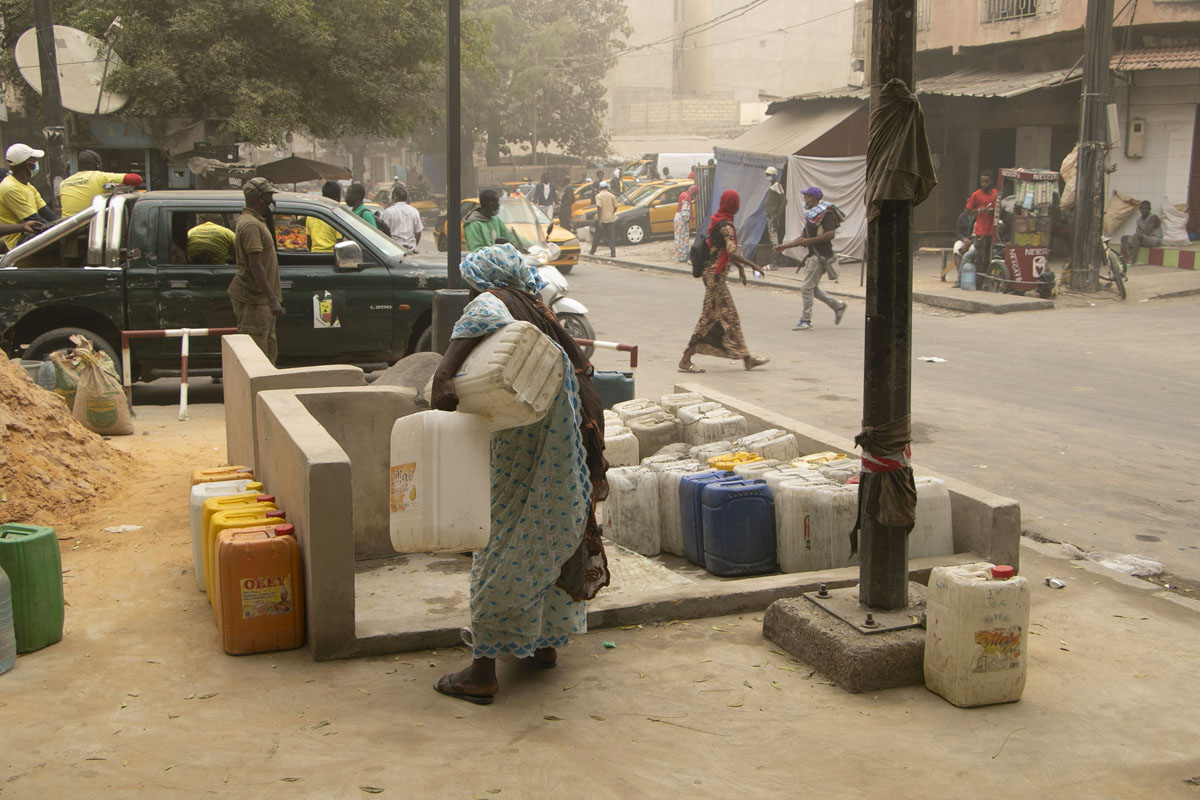[LUM#15] Water, the urban challenge
Good quality water in sufficient quantity is not a matter of course. In fact, it's a crucial issue for cities in Africa, whose populations population is growing by the day, but but lack infrastructure for water distribution and sanitation infrastructures to keep pace with this demographic explosion.

On the blue planet, over 2 billion people do not have access to good quality water. Most of them live in Africa, a continent of contrasts, where water is overabundant in some places, and dramatically lacking in others. The whole of sub-Saharan Africa is suffering from an ever-worsening water shortage," warns Eric Servat. Groundwater levels are very low, and some rivers have completely dried up", explains the director of ICIREWARD, UNESCO's international center dedicated to water. This critical situation is exacerbated by global warming, which is accompanied by increasingly scarce rainfall.
Climate refugees
While access to water is a global problem, it's a particular issue in cities, "one that we don't yet fully appreciate," says Eric Servat. Every day, thousands of people leave their homes in rural areas that have become uninhabitable, whether due to climate change or other causes such as terrorism. All these climate refugees are moving to the cities. As a result, urban demographics are exploding, and megacities of over 10 million inhabitants are multiplying.
While urbanization represents a global trajectory - it is estimated that by 2050, almost 70% of the world's population will be living in cities - this phenomenon raises problems specific to Africa. Neo-urban dwellers suffer a double penalty: "they have left everything behind to arrive in these big cities, where they don't master the codes, and where they are crammed into precarious housing, often without access to quality water". The cause? " These cities are cruelly lacking in infrastructure, in particular drinking water distribution networks and sewage systems," explains Eric Servat.
Disease vector
This is a real public health problem, because while water is a source of life, it is also a formidable vector of disease. "In the absence of a sanitation system, polluted water seeps into the ground. It then directly pollutes the water table, contaminating a resource that is already scarce in some places," explains Eric Servat. " On average, around the world, 1,400 children under the age of 5 die every day from diarrhoeal diseases, often caused by water that is unfit for consumption", deplores the hydrologist.
So how can we supply sufficient quantities of quality water? Although membrane filtration and seawater desalination systems exist to produce drinking water, they are "a long way from being able to meet all demand. Potabilizing and distributing water in sufficient quantity requires the installation of heavy infrastructures, to pump water from groundwater or fetch it from lakes that are sometimes located far away".
Investment deficit
Infrastructure is a key element in water access strategies. " In a context of lack of resources, water is too often considered the poor relation in the policies implemented in African countries," notes Eric Servat. As a result, there is a serious lack of investment in this area, and a crying lack of infrastructure that makes the situation of populations very precarious.
Kōichirō Matsuura had already made this observation years ago: "Despite the importance of water to all aspects of human life, the sector is affected by a chronic lack of political support, inadequate governance and significant under-investment", observed the former Director-General of UNESCO at the time. Kōichirō Matsuura also stressed the urgency of an action plan if we are to avoid a global water crisis," adds Eric Servat. Words spoken at the beginning of this century, but which remain highly topical!
Water chores" weigh down on girls
Walking for hours to fetch drinking water. Walking farther and farther in search of this increasingly rare blue gold. This is the daily life of millions of little girls in Africa, who are responsible for the household water supply. So many hours spent away from school, as Audrey Azoulay, Director-General of UNESCO, pointed out on World Water Day on March 22, 2020: "the involvement of women and girls in 'water chores' represents hundreds of millions of hours during which they do not go to school and have no access to an education likely to emancipate them and make them responsible citizens free to make their own choices".
"Women's attitude to water has a real impact on society, particularly in terms of democracy," adds Eric Servat. The Director of the UNESCO International Center for Water has therefore decided to get involved in this battle. " We contacted two UNESCO Chairs working on the issue of water and gender in Togo and Côte d'Ivoire, who have been working in the field for 15 years", explains the researcher, who hopes to set up partnerships with these Chairs, which will be present at the New Africa-France Summit in Montpellier in October 2021. A battle that also involves training: "the scientific community in the North can contribute to the training of female students in the water sector".
UM podcasts are now available on your favorite platforms (Spotify, Deezer, Apple podcasts, Amazon Music...).